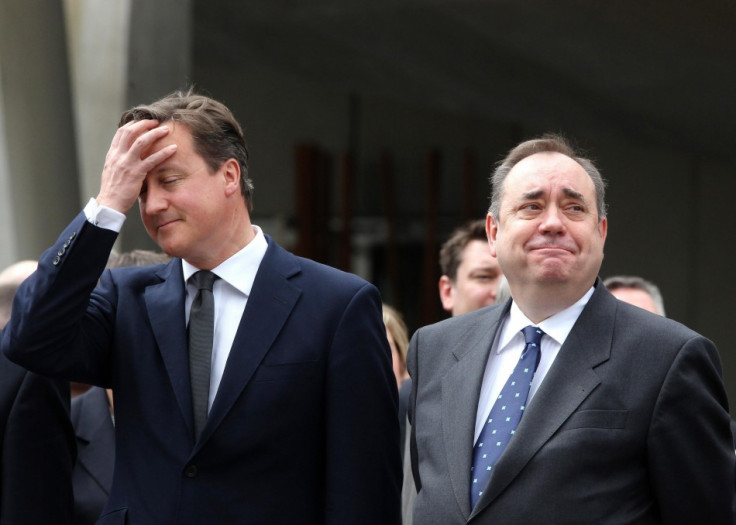Scottish Referendum: An 'Unholy Legal Mess'

A constitutional specialist has called the legal issues surrounding the Scottish referendum an "unholy mess" in the run-up to talks between the prime minister and the Scottish first minister.
David Cameron and Alex Salmond have agreed to meet for the first time since the Scottish National Party leader announced he would stage a referendum on Scottish independence during autumn 2014.
Tom Bennett, a lecturer at BPP Law School, told International Business Times UK: "Had we a codified constitution like most western democracies, things would be clearer.
"Cameron is buzzing the word 'legal' around but the reasoning behind the government's position remains unclear and it is difficult to speculate upon it."
The Scotland Act 1998, which brought about the possibility of devolution, makes a clear point of reference to the issue of power:
- Schedule 5 (1)(b) makes the power to alter the union of England and Scotland a "reserved matter" - one exercisable only by Parliament at Westminster.
- Section 29(2)(b) of the same Act states that Holyrood has no competence to legislate on reserved matters.
"It certainly appears that a strict reading of the Scotland Act precludes the Scottish Parliament from declaring independence - either with or without a referendum," Bennett said. "It also appears to preclude Holyrood holding a binding referendum on independence."
Nevertheless, due to the unwritten nature of the UK constitution, there are several contradictions that exist in Scottish law.
"The Declaration of Arbroath of 1320 argues that it is the people of Scotland, and not Westminster, who have the ultimate sovereign right under Scottish law to determine who rules them," Bennett said.
"In Scotland, one maintains that the Westminster Parliament is a creation of the Treaties and Acts of Union between England and Scotland [in 1707] that created Great Britain in the first place and so its capacity to enact law is limited by those treaties."
Bennett suggested, however, that as the political rhetoric becomes stronger on either side of the border, many of these points will be lost in the dog-fight.
He said: "Obviously, both sides will throw around legalistic buzzwords with increasing vigour as the political issue heats up, but objectively assessing the strength of the arguments requires attention to detail and an in-depth appreciation of the long-standing constitutional issues that have never been adequately resolved between England and Scotland."
© Copyright IBTimes 2024. All rights reserved.





